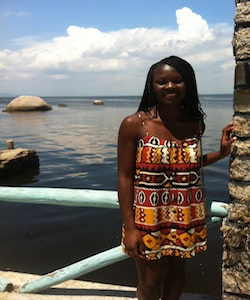Today happens to mark my fiftieth day in Rio de Janeiro, Brazil. Each one of these days has granted me an even deeper understanding of the social issues festering underneath the surface of picturesque beach days and endless parties.
I chose to come to Brazil because of my interest in transportation infrastructure and third world economic development. However, the time I’ve spent here has profoundly affected me; leading me away from my original mission—to find a job here in the private sector—and pulling me towards understanding and connecting with the people. As a Nigerian-American exchange student, I find myself in a unique position to observe how the issue of race plays out in this country. When I walk through the streets of Leblon, Ipanema, or Copacabana, my interactions with natives are impacted by the fact that I appear Afro-Brazilian. Consequentially, being treated as I appear has been a positive experience in the sense that locals are willing to approach me as another local, allowing me to practice Portuguese in a more natural manner. However, it has also been negative in that I have been the victim of racist comments and microagressions in the same way that any Afro-Brazilian would be. For the entirety of my stay I have the unique opportunity to walk in someone else’s shoes by just being myself.
What I’ve found to be really valuable is the conversations I’ve had with people from a variety of backgrounds. I am currently living with an upper class Euro-Brazilian family in one of the most expensive areas in the city of Rio de Janeiro and in all of Brazil. Over the dinner table, I’ve had dynamic talks about race, class, etc. I appreciate that they are so curious about my experience here and have even asked if I felt preconceitos (racism) from day to day. However, as expected, their views and the views of locals living in favelas are very different. I plan to explore how and why these views can be so different in a city where rich and poor, black and white, mix in the same space, but not the same circles.
I am also discovering that the concept of race and/or color is so much different than in the United States. In Brazil, there is no such thing as the “One Drop Rule.” People of mixed race, or even lighter toned people of color, do not consider themselves to be black. In Brazil, there seems to be a spectrum of blackness, with many labels of skin tones, including Pardo or Mulatto. It is a bit difficult for me to get used to, especially coming from a country where most of the Brazilian population would just be simply considered black.
I am very fascinated by life here, how people see themselves, and how others see them. What makes Brazil particularly interesting is that it was the last country to abolish the slave trade, and so society it is still profoundly affected by that sad fact. You see this every day on the streets, at the beach, and in restaurants. You see this most especially in the interaction between race and class in Brazil, where being of a certain socioeconomic status and a certain race seem to be, in most cases, the same thing.

